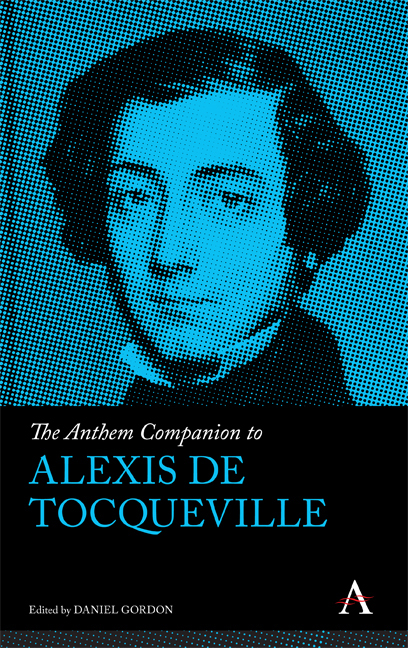Book contents
- Frontmatter
- Contents
- Introduction: Tocqueville and the Sociological Conversation
- A Note on References to Democracy in America
- Part 1 Religion And Immaterial Interests
- Part 2 Language, Literature, and Social Theory
- Chapter 3 Tocqueville Mortal and Immortal: Power and Style
- Chapter 4 Tocqueville and Linguistic Innovation
- Part 3 Globalism and Empire
- Part 4 Inequalities Inside Democracy
- Part 5 Citizenship, Participation, and Punishment
- Part 6 An Unfinished Project
- Notes on Contributors
- Index
Chapter 4 - Tocqueville and Linguistic Innovation
from Part 2 - Language, Literature, and Social Theory
Published online by Cambridge University Press: 12 July 2019
- Frontmatter
- Contents
- Introduction: Tocqueville and the Sociological Conversation
- A Note on References to Democracy in America
- Part 1 Religion And Immaterial Interests
- Part 2 Language, Literature, and Social Theory
- Chapter 3 Tocqueville Mortal and Immortal: Power and Style
- Chapter 4 Tocqueville and Linguistic Innovation
- Part 3 Globalism and Empire
- Part 4 Inequalities Inside Democracy
- Part 5 Citizenship, Participation, and Punishment
- Part 6 An Unfinished Project
- Notes on Contributors
- Index
Summary
Alexis de Tocqueville holds an important place in the history of political and social thought. His masterwork, Democracy in America (henceforth DA1), is affiliated with a number of key ideas, such as:
• The world is becoming increasingly democratic.
• Democracy is not merely a form of government but is a social state characterized by the passion for equality.
• The commitment to equality, while improving the material well-being of the majority of citizens, also creates perils, such as excessive state centralization.
• These perils can outweigh the benefits of democracy and produce a democratic despotism.
• Decentralization can be preserved by maintaining vibrant private associations and local governments.
Readers will observe that I have not quoted Tocqueville. I appear to have summarized his ideas in my own words. But I have actually used terms that are part of Tocqueville's distinctive vocabulary: social state, passion for equality, material well-being, centralization, decentralization, and democratic despotism. Even the word “democratic,” to describe anything other than the form of government, was a novelty in Tocqueville's time, as I explain below. Tocqueville's terminology sounds plain to us today but was innovative for his era. We need to appreciate the verbal creativity that Tocqueville exercised to formulate original ideas that now appear to be communicable in ordinary language.
With some notable exceptions (Guellec 2004; Mélonio 2004; Jaume 2013), the scholarly literature on Tocqueville has not focused on him as linguistically original. Commentators generally portray Tocqueville as a motor of original thinking but not as the wielder of a novel lexicon. Unlike the work of Marx, Tocqueville's work appears to be free of jargon. In his preface to the English edition of Marx's Capital, Engels defended Marx's “use of certain terms in a sense different from what they have, not only in common life, but in ordinary Political Economy” (Engels [1886]1906, 29). For “every new aspect of a science involves a revolution in the technical terms of that science.” It is indeed hard to imagine how one could explain the fundamental ideas of Marx without focusing on some of his special terms such as “exchange value” and “use value.”
- Type
- Chapter
- Information
- The Anthem Companion to Alexis de Tocqueville , pp. 65 - 88Publisher: Anthem PressPrint publication year: 2019



